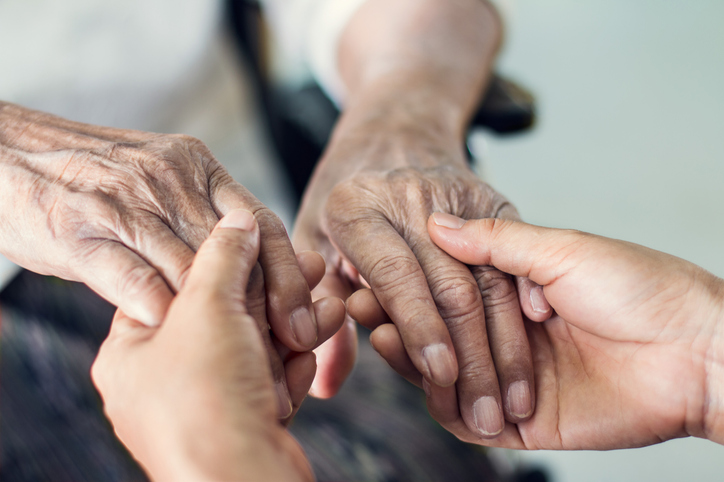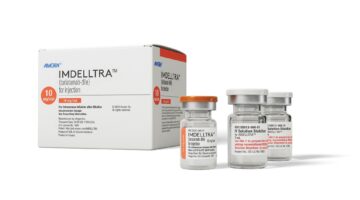A Navy pilot who served in the Iraq war has developed a counseling platform designed to overcome a big challenge in getting veterans therapy by providing anonymous enrollment. It’s part of a self-directed program the Department of Veterans Affairs is offering called Vets Prevail through health IT startup Prevail Health Solutions’ website.
The CEO of Prevail Health Solutions, Richard Gengler, flew F/A 18 Hornets in Iraq for the U.S. Navy. Vets Prevail guides users, who enroll anonymously, through interactive questions to develop an initial assessment. It tailors a multistep program to their needs.
It combines calls with military peers who have been through similar experiences with reading assignments. By completing directed tasks, users get points that can be used to buy items such as gift cards for purchases.

Using Informed Awareness to Transform Care Coordination and Improve the Clinical and Patient Experience
This eBook, in collaboration with Care Logistics, details how hospitals and health systems can facilitate more effective decision-making by operationalizing elevated awareness.
The scale of behavioral health needs among military veterans returning from Iraq and Afghanistan is significant. A Rand Institute study from 2009 estimated that 300,000 veterans are coping with some form of psychological problem such as depression or PTSD. Coupled with that is an aversion to seeking help, with the assumption that it will be bad for their military career.
In an interview with MedCity News, Gengler said he got the idea for the company when he was studying for an MBA at University of Chicago. He got the idea for the platform after he encountered a primary care physician. He told him about how many of the patients he was seeing have underlying behavioral health issues. When he would try to refer them to psychologists, most wouldn’t go. He impressed on Gengler the need for online avenues to help them.
That was the seed for what became Vets Prevail. He secured funding and collaboration help from the National Science Foundation. He also attracted funding from Bristol-Myers Squibb Foundation, Goldman Sachs Gives, and the Robin Hood Foundation to test the program. Collectively, Gengler raised more than $3 million to develop his program.
“A lot of behavioral health programs like this are dry.” said Gengler. ” We wanted to create a specifically tailored and dynamic program. It creates initial assessments and tailors them, like an eHarmony for mental health.” By including targets users have to meet it helps keep them engaged.

With the Rise of AI, What IP Disputes in Healthcare Are Likely to Emerge?
Munck Wilson Mandala Partner Greg Howison shared his perspective on some of the legal ramifications around AI, IP, connected devices and the data they generate, in response to emailed questions.
Two pilot programs showed equivalent reductions in symptoms for people with PTSD and users with high levels of depression and those symptoms significantly declined as part of the four-week program, Gengler said. The second pilot earlier this year was a control trial. Of the 200 vets who used the program, 160 made it through each step of the program. He said their outcomes rivaled those of an in-person visit and were much less costly.
It also partners with Give an Hour — a nonprofit founded in September 2005 by psychologist Dr. Barbara Van Dahlen. The 5,000 therapists who are members give one hour a week of free counseling to vets.
He sees its potential to help not just veterans but active duty soldiers and civilians as well. He has developed similar apps for active duty military personnel (Warriors Prevail) college-aged students (Students Prevail), employees (iPrevail) with behavioral health problems such as depression and women with postpartum depression (Women Prevail).
All of these applications are ready to be deployed but Gengler is first looking for collaborative partners for pilots. He takes the view that having an online option that combines anonymity and accessibility will help people in these groups who might otherwise not get any.
“We are a push program not a pull,” said Gengler. “We are interested in getting reluctant care seekers to make early first steps and hopefully, they will make positive decisions and hopefully we will nudge them along.” One goal of the online program is to give users a comfort level with the therapy that will spur them to seek in-person therapy, guided by the program.
Depending on how reimbursement evolves with telemedicine, Gengler sees the potential to add a video interaction component to the program if users are interested.
I’m skeptical as to how effective the platform will be as a substitute for in-person care. But it could do a lot for helping ease personal resistance to seeking mental health treatment. It could also help them build the confidence to get more help.
Earlier this year, Veterans Affairs began piloting a program to deploy iPads loaded up with mobile health apps. It is part of the Family Caregiver pilot program that provide iPads to 1,000 caregivers of seriously injured veterans of the Iraq and Afghanistan wars.












